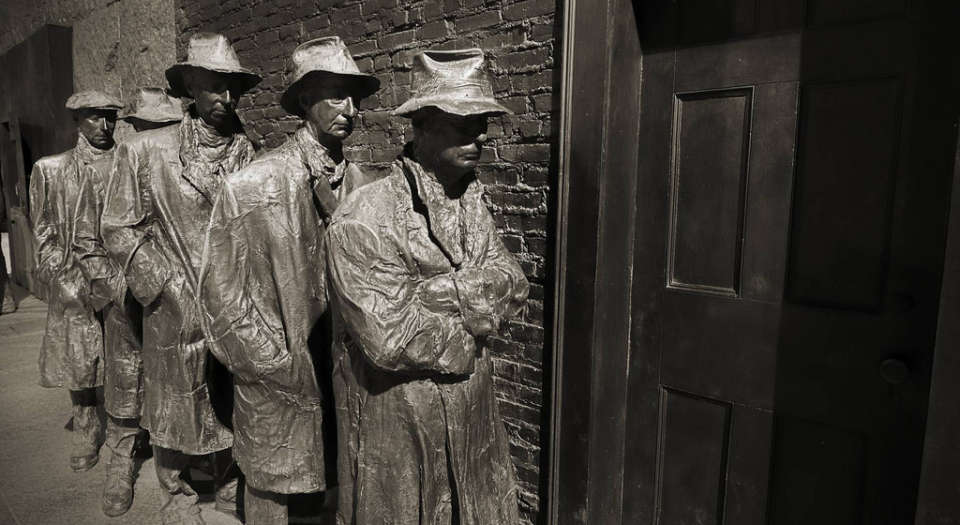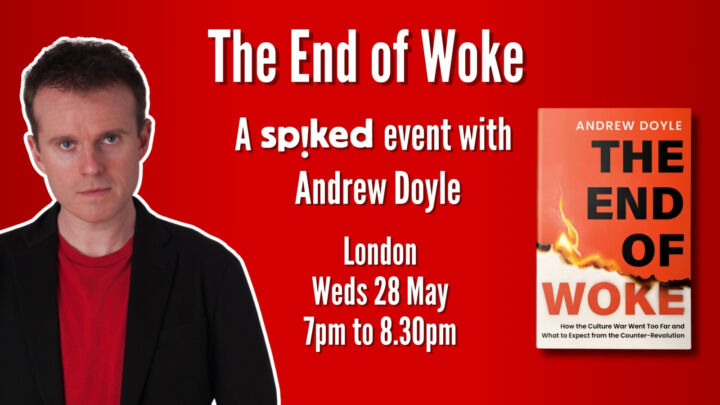
Long-read
Utopia for miserabilists
Rutger Bregman’s supposedly utopian call for ‘free money for all’ is meant to smooth the way for savage cuts in consumption.
Want to read spiked ad-free? Become a spiked supporter.
From the title onwards, Utopia for Realists is an exercise in sophistry. Despite the ample use of revolutionary rhetoric, the consequence of its proposals would be a hyper-austerity that would make the most hawkish free marketeer blush.
Let’s start with the book’s outsized claims. Rutger Bregman, a 29-year-old Dutch writer, says the work is ‘an attempt to unlock the future’. He puts his proposals on a par with the historical campaigns for democracy, the abolition of slavery and women’s suffrage. So he certainly appears to have no shortage of ambition.
Bregman also makes the welcome argument that there is an alternative to the way the world currently runs. ‘Things could be different. The way our world is organised is not the result of some axiomatic evolution.’
More specifically, his big idea is that everyone, however rich or poor, should have a right to a universal basic income (UBI) paid by the state. ‘Free money for everyone’, as he prefers to call it. In this he claims to be following in the footsteps of a peculiar combination of luminaries, from democratic campaigners (Thomas Paine, Martin Luther King) to free-market economists (Milton Friedman, Friedrich Hayek) and disgraced politicians (US President Richard Nixon). Bregman argues that such a programme would lead to lower inequality, less poverty, lower crime rates and higher economic growth. To substantiate his case, he points to empirical studies mainly done by economists.
For example, he starts his second chapter with an account of a research programme conducted on 13 homeless men in London a few years ago. A local charity gave the men £3,000 each in cash to spend as they wished. In Bregman’s account, the experiment was a resounding success. The lives of all 13 improved considerably in the year and a half after the experiment began. Moreover, the London homeless project saved a huge amount of money in terms of the costs of policing and welfare. This opens the way for his subsequent argument that a UBI could replace conventional social-security payments. In his view, the welfare state has become ‘a perverse behemoth of control and humiliation’. This argument has some truth to it although it understates the extent to which the welfare system in many countries has come to sap individual ambition and corrode social solidarity.
Bregman also claims that Westerners will be working 15-hour weeks by 2030. The developed economies will be so wealthy that there will be no need to work longer. Although he devotes an entire chapter to this topic, he does not make the connection to the UBI explicit. Presumably it is to help with the transition to a more leisured society.
In certain circles, Bregman has won widespread plaudits for his arguments. The Guardian has described him as a ‘Dutch Wunderkind’, and numerous intellectual luminaries have endorsed his book. Support for the idea of a UBI is also gaining ground in many countries. In that respect, Britain is relatively late to the game. Switzerland had a referendum in 2016 on a proposal to introduce the basic income, although it was rejected by 77 per cent of those voting with only 23 per cent backing it. There are also UBI experiments taking place in Canada, Finland, India, Kenya and the Netherlands. It has gained significant support in Silicon Valley, including from the likes of Elon Musk, a tech billionaire, and Sam Altman, who is the head of Y Combinator, a start-up incubator, and the backer of a UBI pilot programme.
At first sight, there might not appear to be much in Bregman’s proposals to object to apart from his own hype. Of course, most people would find the idea of governments giving cash handouts to billionaires outlandish. Other than that, it seems like at least a plausible proposal. But read Bregman’s book closely and it becomes apparent that what is really being suggested is a savage cut in living standards. He tries to play down these consequences, but the argument is clearly there for those who care to look. In this he shares much with the eco-modernists who use progressive language but are even more reactionary than mainstream greens.
Read Utopia for Realists closely, and it becomes clear that it favours the idea of a UBI precisely because it will encourage people to work less. Reducing the incentive to work is not an inadvertent flaw in the proposal, but its essence. ‘Some people may opt to work less, but that’s precisely the point’, he says. Bregman wants people to do less work precisely because their income will fall and in turn they will be less able to buy things. ‘Consuming less starts with working less’, he says.
Many of the favourite green dogmas are stated explicitly in Utopia for Realists. He says we live in a world of ‘overabundance’ and in the midst of an ‘addiction to consumerism’, where the working classes are duped by the elite into ‘false consciousness’. Bregman concedes that consumption could rise a little in the short term, but argues that the inevitably adverse effects would include pollution and obesity.
Of course, more leisure time – of the voluntary variety rather than the enforced – would be desirable if it could be achieved while maintaining high living standards. But a precondition for meeting this goal would be a more productive economy than exists at present. An economy that was a more dynamic could maintain high living standards, while allowing us to work 15 hours per week. This challenge of raising productivity is central to the discussion in Creative Destruction, by spiked contributor Phil Mullan.
But nowhere does Utopia for Realists address the West’s prolonged economic lethargy. Instead Bregman loves discussing small-scale academic studies, such as that on 13 homeless men in London, but nowhere does he discuss the West’s economic stagnation. On the contrary, the working assumption, made explicitly but played down, is that popular consumption must be slashed rather than increased.
Utopia for Realists professes opposition to austerity, but he has put forward a programme that would in practice outdo the most hardcore fiscal conservatives. He is yet another green miserabilist discussed as an optimist.
Daniel Ben-Ami is a writer based in London. Visit his website here. An expanded version of Ferraris for All: In Defence of Economic Progress is available in paperback (Buy this book from Amazon (UK)
Utopia for Realists: And How We Can Get There, by Rutger Bregman, is published by Bloomsbury. (Buy this book from Amazon(UK)).
Picture by: Brian Talbot, published under a creative commons license.
Who funds spiked? You do
We are funded by you. And in this era of cancel culture and advertiser boycotts, we rely on your donations more than ever. Seventy per cent of our revenue comes from our readers’ donations – the vast majority giving just £5 per month. If you make a regular donation – of £5 a month or £50 a year – you can become a and enjoy:
–Ad-free reading
–Exclusive events
–Access to our comments section
It’s the best way to keep spiked going – and growing. Thank you!






Comments
Want to join the conversation?
Only spiked supporters and patrons, who donate regularly to us, can comment on our articles.